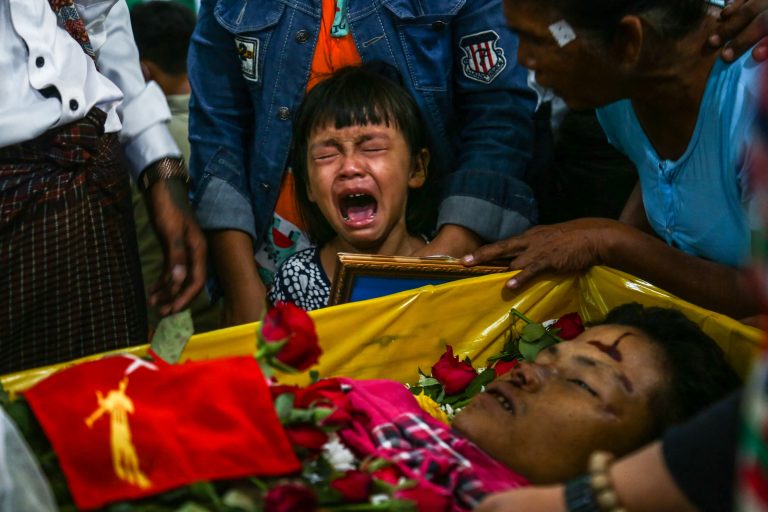On Sunday, Dec. 12, the UK imposed a series of new sanctions against the Southeast Asian nation of Myanmar amidst a continuous rise of human rights abuses reportedly conducted by the military government.
The sanctions followed the ousting and two-year imprisonment of Aung San Suu Kyi in February, prompting the UK to respond to the suppressive measures.
Suppressing the suppressors
The sanctions by the UK include banning travel to Myanmar and freezing assets to those linked to the human rights violations who are “undermining fundamental rights and liberties.”
The UK government claims that the sanctions were imposed to show its determination in holding Myanmar’s military accountable for the myriad of human rights abuses by cooperating with allies in cutting the military junta’s access to equipment and funds.
The Myanmar (Sanctions) Regulations are designated to specific groups that are believed to be involved in the violations and abuses, thus “undermining fundamental rights and liberties,” according to the UK government.
Success
You are now signed up for our newsletter
Success
Check your email to complete sign up
Among the groups targeted are the Quarter Master General’s Office, which is instrumental in providing equipment for the Myanmar Armed Forces, and is responsible for supervising the ongoing violence across Myanmar.
The Directorate for Defence Industries, an enterprise owned by the state, is targeted for its manufacturing of weapons and technology for the military.
The Directorate for Defence Procurement is held responsible for purchasing arms from abroad that would be used by the military to violate human rights amongst the civilian population.
Finally, the Myanmar War Veterans Organisation, a quasi-reserve force for the military, is being held responsible for publicly supporting the acts of violence.
The UK also sanctioned Furqan Bangalzai, the former commander of the Lashkar e-Jhangvi terrorist organization, which was responsible for the 2017 bombing of the lal Shahbaz Qalandar shrine in Sehwan, Pakistan. The attack claimed the lives of 70 followers of the Sufi faith.
British Foreign Office minister Lord (Tariq) Ahmad claimed that the sanctions were made to “target some of the most callous violations and abuses of human rights.”
“The UK will always be a fierce champion of human rights and we will work with our fellow democracies and partners, as a network of liberty, to hold to account those who deny these fundamental freedoms.” Lord Ahmad said.
Earlier sanctions were announced by the UK in September this year, targeting conglomerate Htoo Group of Companies and its founder Tay Za for the tycoon’s involvement in arms deals for the military.
Myanmar’s military woes
More than seven decades after granting Myanmar its independence, the UK government struck the nation with new sanctions, alongside existing ones established by the United States and Canada, over the ongoing development of violence and human rights violations made by the military government.
The country’s former leader Aung San Suu Kyi was dethroned in February as part of a de facto coup by the army and is now held at an undisclosed location. On Dec. 6, a special court started its first rulings against Suu Kyi for “incitement and breaching coronavirus restrictions.” Should she be found guilty on all charges, Suu Kyi could be jailed for 100 years.
According to Amnesty International, the human rights abuses conducted by the military government include the genocidal acts against the Rohingya Muslim population, the killing of civilians at the Rakhine State and Paletwa township via airstrikes, forced labor, arbitrary detention, torture and other oppressive acts on civilians.
Even as the COVID-19 pandemic struck and the need for humanitarian aid grew, the country refused any help from the United Nations (UN) and non-government organizations (NGO) to aid those affected by the violence and death.
In one instance, a vehicle belonging to the World Health Organization (WHO) providing COVID-19 test samples was ambushed in the Rakhine State, resulting in the death of the driver. Another incident involved the injuries of two men and the death of one after a vessel of the International Committee of the Red Cross (ICRC) was attacked in Rathedaung Township. The Myanmar military, as well as the opposing Arakan Army, denied responsibility for both incidents.
On Monday, Dec. 13, Human Rights Watch (HRW) reached out to the United Nations and the Association for Southeast Asian Nations (ASEAN) to request Myanmar’s military government to open up for humanitarian aid.
HRW director Kenneth Roth posted on Twitter accusations towards the military for “blocking desperately needed aid from reaching millions of displaced people and others at risk.”
According to the Indian news magazine Frontline, the sanctions made by the UK, U.S. and Canada could put pressure on other European nations to support or act against the Myanmar government for its human rights abuses.
The U.S. Secretary of State Antony Blinken said that President Joe Biden invited leaders of Southeast Asia to a summit to discuss the matters regarding the Myanmar crisis, suggesting heavier sanctions upon the military junta.
Elsewhere in Southeast Asia, Cambodia has also been hit with sanctions by the U.S. due to its own record of human rights abuses, as well as reports of the government’s cooperative efforts with the Chinese Communist Party (CCP). However, the nation’s upcoming chairmanship of ASEAN might culminate in less repercussions for itself and Myanmar.

















